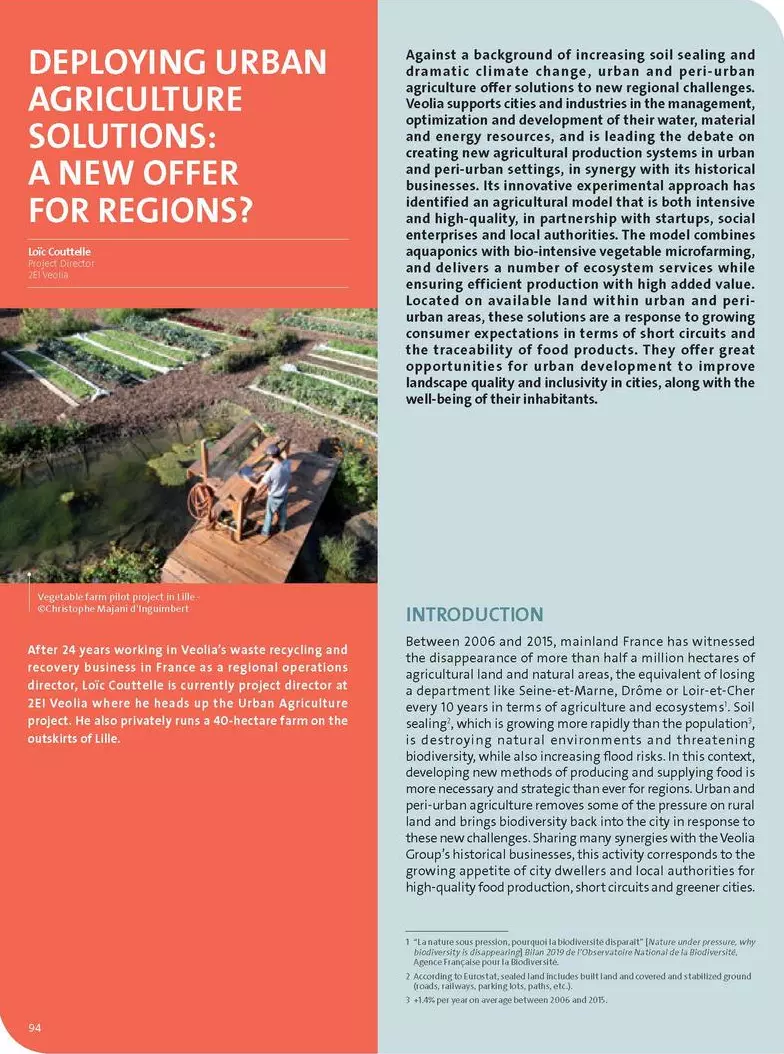Loïc Couttelle, Project Director, 2EI Veolia
Against a background of increasing soil sealing and dramatic climate change, urban and peri-urban agriculture offer solutions to new regional challenges. Veolia supports cities and industries in the management, optimization and development of their water, material and energy resources, and is leading the debate on creating new agricultural production systems in urban and peri-urban settings, in synergy with its historical businesses. Its innovative experimental approach has identified an agricultural model that is both intensive and high-quality, in partnership with startups, social enterprises and local authorities.
The model combines aquaponics with bio-intensive vegetable microfarming, and delivers a number of ecosystem services while ensuring efficient production with high added value. Located on available land within urban and periurban areas, these solutions are a response to growing consumer expectations in terms of short circuits and the traceability of food products. They offer great opportunities for urban development to improve landscape quality and inclusivity in cities, along with the well-being of their inhabitants.



